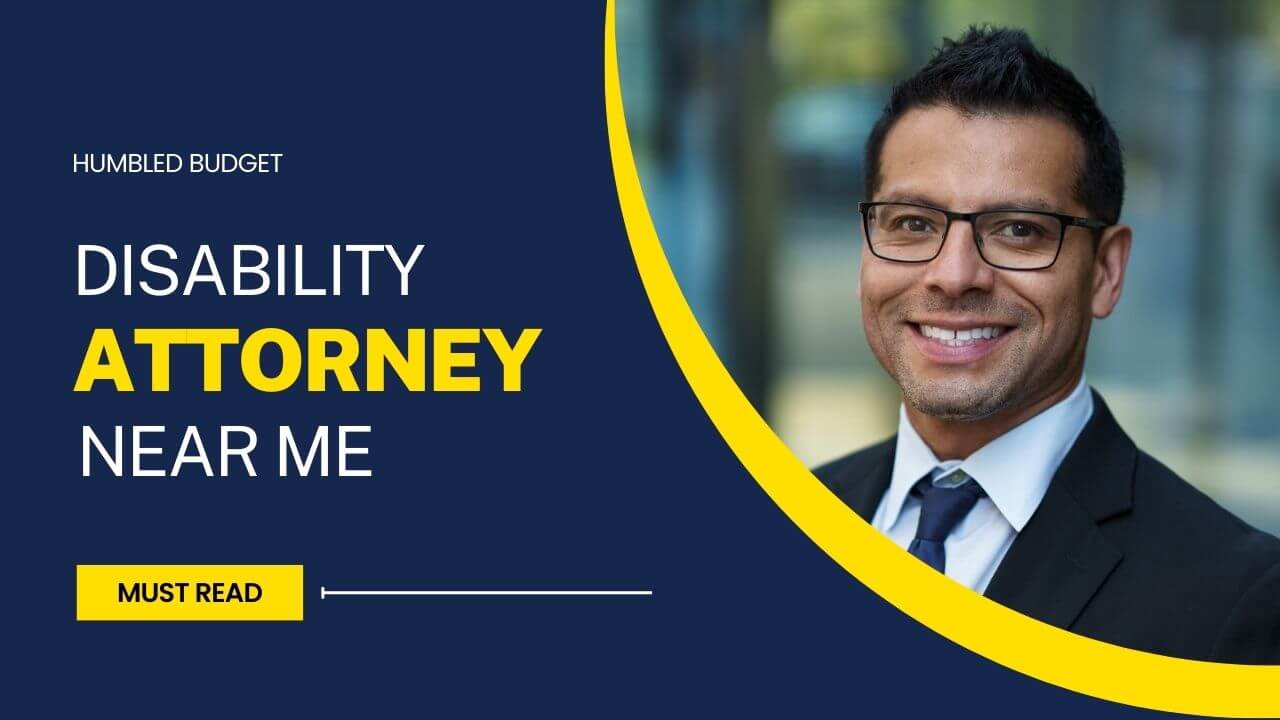It’s no secret that many Americans struggle to meet ends. A recent study showed that nearly 40% of Americans couldn’t cover a $400 emergency expense. If you’re living paycheck to paycheck, it can feel like you’ll never be able to retire, let alone retire early.
However, there is hope. With careful devising and execution, it is possible to achieve financial independence and retire early. Here’s how:
Table of Contents
ToggleInvest in yourself first.
One of the best ways to procure financial independence and retire early is to invest in yourself first. That means saving money each month and investing it in yourself through things like education, training, or investing in a business.
When you spend in yourself, you’re building your human capital, which will pay dividends for years. Not only will you be more likely to achieve financial independence and retire early, but you’ll also be more likely to bring in a higher income and have more job security.
Another important step is paying off debt. If you bear high-interest debt, such as credit card debt, auto loans, or student loans, it’s essential to focus on paying them down as quickly as possible. The sooner you can get out of debt, the sooner you’ll be on your way to achieving financial independence and retiring early.
When it comes to debt reduction strategies, there’s no one-size-fits-all approach. However, some effective strategies include paying debts with the highest interest rates first or using the efficient “debt snowball” process.
The debt snowball process is a debt reduction strategy that pays off debts from most minor to largest, regardless of interest rate. Once the lowest debt is paid off, you roll the payments you made into payments on the next lowest debt until all debts are paid off. The idea is that paying off smaller debts will give you a quick win and motivate you to keep going.
Creating a budget is another crucial step. When you start a budget, you’ll have a clear picture of your income and expenses to make informed decisions about where to designate your money each month.
Once you have a budget in place, it’s essential to stick to it to continue progressing towards your goal of financial independence and retiring early.

Invest in a diversified mix of assets.
The first step is to work out your current savings rate. This is simply the percentage of your income that you’re saving each month. To calculate this, divide your monthly savings by your gross monthly income.
For example, if you are saving $500 per month and your gross monthly income is $3,000, your savings rate would be 16.7%.
Most “financial independence and retire early” proponents recommend saving at least 50% of your income, but this may not be feasible for everyone. Once you’ve calculated your current savings rate, set a goal to increase it over time until you reach the 50% mark.
Next, you need to determine what asset mix is right for you. This will depend on age, investment experience, risk tolerance, and time horizon. A good rule of thumb is to preserve at least 10% of your portfolio in cash and the rest in a compound of bonds and stocks.
If you’re starting, consider investing in a target date retirement fund or a Robo-advisor like Betterment or Wealthfront. These services provide a diversified mix of assets and can help you start investing without researching beforehand.
Start saving early and often.
Compounding interest is your dear friend when it comes to retirement savings. Compound interest is when you gather interest on your original investment and any interest accrued over time. This means that the longer your money is invested, the more it will grow.
For example, let’s say you invest $1,000 today at a rate of 5% compound interest. After one year, you will have earned $50 in interest, and your total investment will be worth $1,050.
After two years, you will have earned $102.50 in interest, and your total investment will be worth $1,152.50. And so on. As you can see, the sooner you start investing, the more time your money has to grow — which can make a big difference down the road.
One common misconception about investing is that you need a lot of money to start. But that’s not true! Even if you only have a small amount of money to invest each month, compound interest will still work its magic.
Consider this: if you start investing $50 per month into a retirement account with a 5% rate of return today, after 30 years, you will have nearly $250,000 saved up—even though you’ve only invested a total of $18,000 of your own money.
And if you can increase your monthly contributions over time, even better. The most important thing is to get started sooner rather than later.

Live below your means.
This may seem a prominent piece of advice, but it’s worth repeating: to retire early, you must be mindful of your spending and ensure that your lifestyle aligns with your long-term goals.
One of the best ways to do this is to live below your means, which means spending less than you earn and investing the difference. This will not only help you save money for retirement, but it will also help you reach other financial goals, such as buying a house or taking a dream vacation.
These four simple tips will help set you on the path towards financial independence and retiring early. Remember to stay disciplined with your savings and investing plans, and you’ll be sure to reach your goals.
What Are The Basic Tenets Of Financial Independence And Early Retirement?
Since the publication of “The Millionaire Next Door” in 1996, financial independence has gained much traction. Financial autonomy has the sufficient personal wealth to live without working actively for necessities. For many, the goal of financial freedom is early retirement.
There are a few basic tenets that underpin the concept of financial independence. The first is that your income must exceed your expenses. This may seem obvious, but it’s more complicated than it sounds. Many people live paycheck to paycheck and have little to no savings. To achieve financial independence, you must be disciplined about spending and prioritize protection.
The second tenet is that you need to invest your money wisely. This means diversifying your investments and not putting all your eggs in one basket. It also means being mindful of fees and other costs associated with investing. The goal is to grow your wealth over time, so you can eventually live off the interest and dividends from your investments.
The third tenet is that you need to have a plan. A plan gives you something to work towards and helps keep you accountable. This doesn’t mean that you need to have everything mapped down to the last detail, but you should have a general idea of what you’re aiming for and how you will get there.
Financial independence is a laudable goal, but it’s not without challenges. Achieving financial independence requires discipline, focus, and planning. But for those who can achieve it, the rewards can be significant.
How Do You Calculate Your Financial Independence And Early Retirement Number?
Everyone’s journey to financial independence is unique. Depending on your current circumstances and future goals, your “number” – the amount of money you need to save to retire comfortably – will vary. However, everyone can follow a general process to calculate their financial independence number. In this blog post, we’ll walk you through the steps.
- Determine your annual expenses. The first step is to calculate your yearly living expenses. This includes not just your rent or mortgage payments but also things like food, transportation, healthcare, insurance, and entertainment. If you’re unsure where to start, a good rule of thumb is to use the 50/30/20 control: 50% of your income goes towards necessities like housing and food, 30% goes towards discretionary spendings like entertainment and travel, and 20% goes towards savings and debt repayment.
- Find your retirement salary target. A good target is 25 times your annual living expenses – this should give you enough room to cover any unexpected costs that might pop up, and you still have enough left over for leisurely pursuits in retirement. Once you know how much money you’ll need each year to cover your expenses, you can start thinking about how much money you’ll need to save to retire comfortably.
- Plug into a retirement calculator. Plenty of online retirement calculators (like this one from CNBC) can help you figure out how much money you need to save each month from hitting your target number by retirement age. All you need to do is input your current age, expected retirement age, current savings, monthly contribution amount, and expected rate of return. The calculator will do the rest of the work for you from there.
- Make a plan and start saving! Once you know how much money you’ll need to keep each month from reaching your financial independence number, it’s time to start working towards that goal. If you don’t already have a retirement account set up (like a 401k or IRA), now is the time to do it. Then, start contributing as much as you can each month until you reach your desired savings goal.
- Keep modifying & re-evaluating as needed. Whatever number you come up with initially is not set in stone; as your circumstances change (you get a raise at work or decide to have kids), revisit your calculations and make adjustments as needed. The most important thing is that you start somewhere; even if it takes you longer than anticipated to reach financial independence, every dollar counts! Life rarely goes according to plan – and that’s okay.
Calculating your financial independence number may seem daunting, but it’s not as complicated as it looks. By following the steps above, anyone can figure out approximately how much money they need to save to achieve their goals. So what are you waiting for? Get started today.
How Do You Manage Your Finances Once You’ve Achieved Financial Independence And Early Retirement?
Achieving financial independence and early retirement is a significant accomplishment that can bring great satisfaction. But it also comes with some challenges, chief among them being how to manage your finances to maintain your lifestyle and keep you on track to meet your long-term goals.
Here are a few tips to help you manage your finances in retirement:
- Review your expenses and make changes where necessary.
Now that you’re no longer working, your income has likely decreased, so you’ll need to look closely at your expenses to see where you can cut back. There’s no magic number for how much you should spend in retirement, but knowing where your money is an excellent place to start. Small changes in your spending habits can go a long way toward keeping your finances on track.
- Stay diversified.
Investing is one of the most critical aspects of managing your finances in retirement, but it’s also important to remember that too much of anything is never a good thing. That’s why it’s essential to diversify your investments by putting your money into different assets, including stocks, bonds, and cash equivalents. Diversifying will help protect you from losing everything if one asset class takes a hit.
- Stay disciplined with debt and withdrawals.
Even if you’re retired, it’s crucial to stay disciplined regarding debt and withdrawals from retirement accounts like 401(k)s and IRAs. Taking on too much debt can strain your finances while making large withdrawals from retirement accounts can jeopardize your long-term financial security. By staying disciplined with debt and leaves, you can help ensure that your retirement nest egg lasts as long as possible.
Managing your finances in retirement may seem daunting at first, but by following these simple tips, you can ensure that your golden years are both happy and prosperous.
What Are The Risks Associated with Financial Independence And Early Retirement?
It’s no secret that more and more people are striving for financial independence and early retirement. But what are the risks associated with this growing trend?
The sequence of events risk: One of the most significant risks associated with financial independence and early retirement is the sequence of events risk. This risk refers to the possibility of unexpected life events that would derail your plans for early retirement. For example, you may retire early only to find yourself needing to re-enter the workforce a few years later due to an unforeseen financial setback.
Longevity risk: Another risk to consider is longevity risk, which is the possibility that you will outlive your savings. This is primarily a concern for those who retire very early, as they may not have enough time to rebuild their nest egg if they experience an unforeseen financial setback.
Market risk: Another significant risk to consider is market risk. This refers to the possibility that the markets could turn worse just as you start withdrawing funds from your investment accounts. For example, if you retired in 2007, just before the start of the Great Recession, you would have experienced a significant decline in the value of your portfolio.
Inflation risk: Another vital risk to keep in mind is inflation risk. This refers to the possibility that your savings will lose value over time due to inflation. For example, if you have $1 million saved for retirement but inflation is running at 2% per year, your $1 million will only be worth $980,000 after one year.
These are just a few risks associated with financial independence and early retirement. While there are undoubtedly many benefits to this growing trend, one must be aware of the potential risks and pitfalls before deciding to retire early.
Conclusion
Achieving financial independence and retiring early is not an impossible feat. It’s something that more and more people are accomplishing every day. All it takes is a little planning, discipline, patience, and determination.
So if you’ve been dreaming of retiring early, start working towards your goal today, and who knows? Maybe one day soon, you’ll be able to say goodbye to the 9-5 grind for good.













